
What is going on at Velo-city this year?
The world's biggest bicycle conference takes place this week. Velo-city Arnhem-Nijmegen 2017 is finally here!
Watch this space for daily coverage of thrilling sessions, inspiring speakers, social events, pictures and much more.
To receive our daily round-up of conference highlights straight to your mailbox, sign up for the ECF Newsletter now at the bottom of this page.
DAY 01: 13th of June
World’s biggest cycling conference takes off with record numbers & royalty
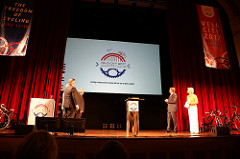
With more than 260 speakers from all over the world Velo-city started today not only with record numbers but also with a spectacular opening by His Royal Highness King Willem-Alexander.

The motto of the conference is ‘The Freedom of Cycling’. Governance, Infrastructure, People, Bikenomics and Urban Planning are the main topics on the table. The Dutch story and the relation between health and sustainability will also be explored in numerous sessions.
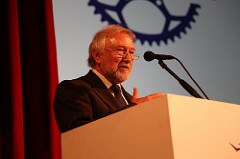
"The mission of the European Cyclists' Federation and all of its networks is to give people around the world the possibility to enjoy the freedom of cycling" said Manfred Neun in his opening speech.
Reaping Economic Benefits of Lower Congestion through more cycling
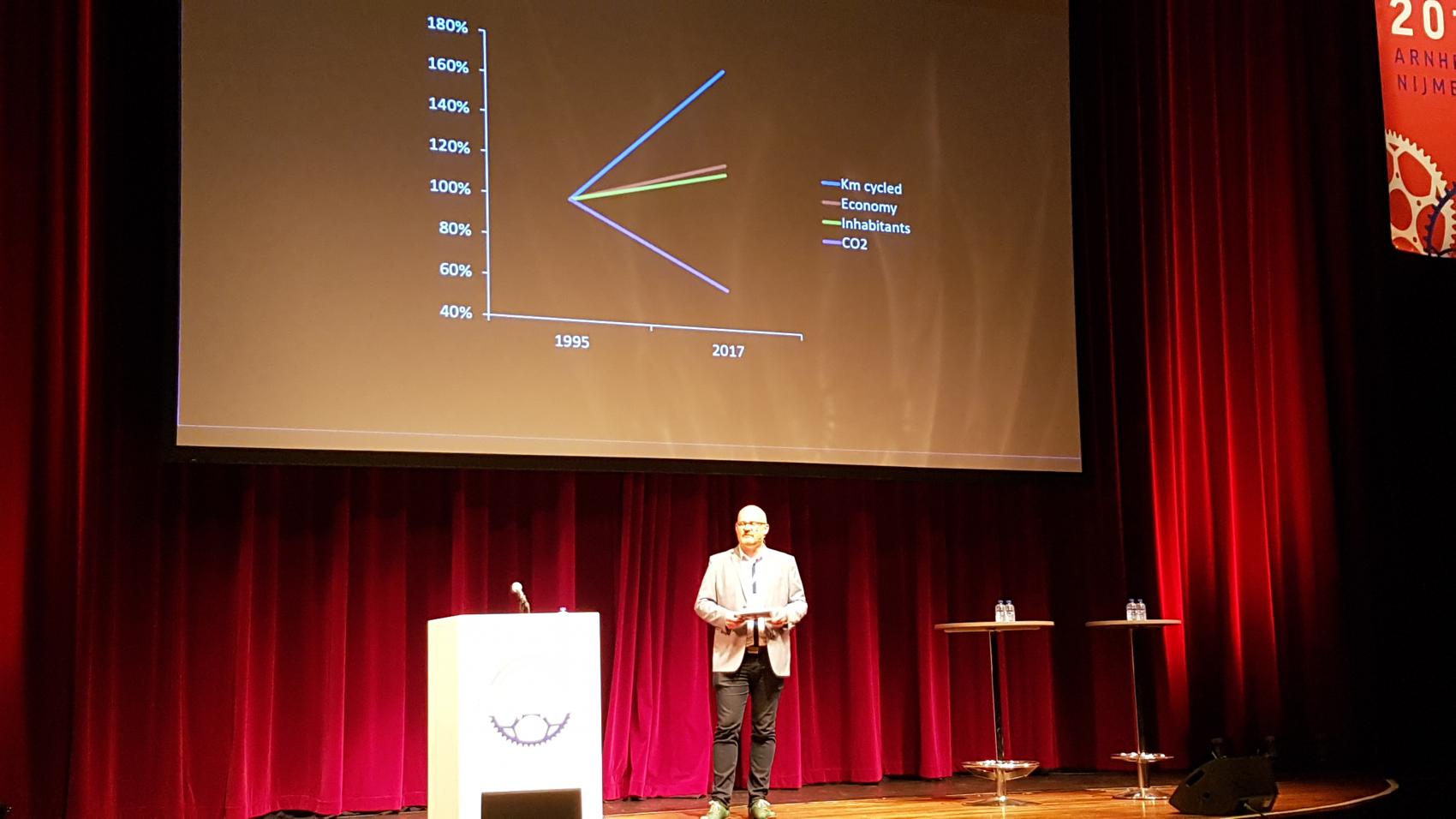 Out of the numerous benefits of cycling, this session focused on the effects of more people riding their bikes on traffic congestion. The European FLOW (Furthering Less Congestion by Creating Opportunities For More Walking and Cycling) project is currently studying these effects. In their concluding remarks, the speakers agreed that current traffic models are not including cycling in a correct manner and that they are too car-centred – so the results of the FLOW project will be very useful for them.
Out of the numerous benefits of cycling, this session focused on the effects of more people riding their bikes on traffic congestion. The European FLOW (Furthering Less Congestion by Creating Opportunities For More Walking and Cycling) project is currently studying these effects. In their concluding remarks, the speakers agreed that current traffic models are not including cycling in a correct manner and that they are too car-centred – so the results of the FLOW project will be very useful for them.
What Gets People Cycling? 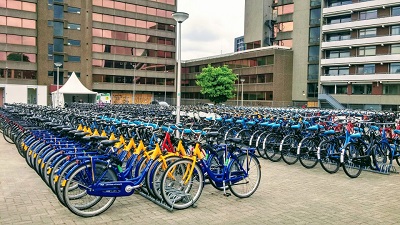
There may be some barriers that keep people from cycling, but there are at least as many creative and innovative projects that manage to break down these barriers. This session featured four examples from around Europe that show how a long-lasting motivation for cycling can be created.
Social Inclusion
Beyond all its physical, environmental, economic benefits, cycling also have huge social impacts, as it is the most inclusive transportation in town. Activtists from Argentina, Brazil, Australia, UK, and the Netherlands, gathered today in the cozy and suggestive Black Room to talk about their campaigns and approaches on social inclusion. An inspiring session, showing the far-reaching possibilities bicycles offer when they stop being thought of as simple mobility tools, and start getting perceived as means of societal improvement and personal.
Cycling for all- what does it really mean?
The first day at Velo-city 2017 ended in greatness. Three keynote speakers bringing forth examples of how bicycles are used as tools for equality and inclusiveness. Specifically Clarisse Linke, from the Institute for Transport and Development Policy, blew the roof off, when she spoke on situation in South America: “In Europe, people take the security of the public spaces for granted – well, it isn’t granted in South America”, where women work in average 5 hours per week more than men; where men usually commute with their own private cars, and women have to share the road with vehicles moving at 70km/h; where less than 10% of the 1% of regular cyclists [Sao Paulo] are women. The conference was literally delayed because the applauses were not stopping.
DAY 02: 14th of June
Bikenomics
Let’s talk Cycling Economics. We need to “set the frame for the sustainable world that we want and above all avoid unsustainable development”, said Manfred Neun, ECF president this morning in Nijmegen, NL. He called for a level playing field with regards to cycling, the use of public space, and development. “It’s our goal to communicate the economic benefits of cycling better, because they deserve more attention” said Neun.
"A bicycle is the vehicle to opportunity" said Ms Julia Nebrija of the Metro Manila Development Authority, speaking of the many people who have few or no options to participate meaningfully in society.
“Gross National Happiness is more important the GDP”, Mr Namgyel Chief Environment Officer for the Royal Government of Bhutan said.He explained that the government consider its policy for the impact not only on Gross Domestic Product, but also on GNH. In this respect, the people of Bhutan have been led by generations of Kings who ride bikes.
Neurologist Bastiaan Bloem Professor at Radboud University Medical Centre, reported that cycling is less affected than other motor activity for Parkinson patients. His research in the field identified that “the single question “can you ride a bike” obviated all the needs for all the other very expensive tests” to identify Parkinson disease. Professor Bloem said that we all have “The right to wind in your hair”.
Extending the Reach: Combining Bicycle and Train
 Public transport operators that fully integrate cycling into their system enlarge their catchment area and hereby attract new customers. Combining cycling with public transport is an effective measure in getting people out of cars.
Public transport operators that fully integrate cycling into their system enlarge their catchment area and hereby attract new customers. Combining cycling with public transport is an effective measure in getting people out of cars.
For Amsterdam, replacing an existing conventional bus line with now much fewer stops, and installing bicycle parking to address the issue that customers now had to travel longer distances to the bus stations, was enough to increase the distance people are willing to cycle to 1900m. A similar measure however, did not work for Rio de Janeiro where 4,000 bike parking places were built at 6 commuter railway stations, but remained largely empty due to a poor level of service. A study from Leuven concluded that every Euro invested in bicycle facilities does unlock 4 Euro’s in benefits.
European Funding for Cycling- Speed Date
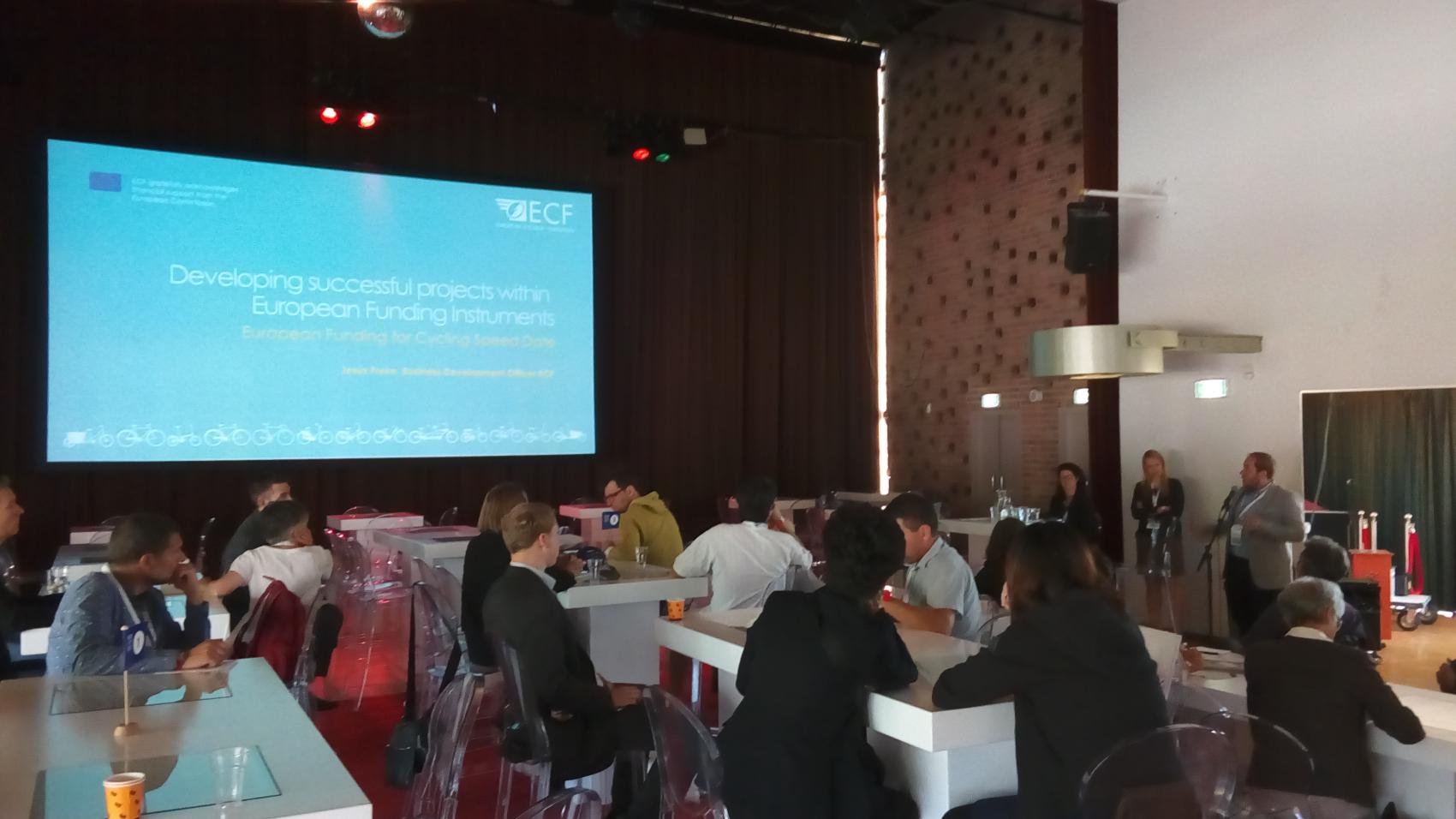 More than 30 participants attended the interesting networking session organized by ECF for people, organizations and public bodies interested in EU funds for cycling projects. The speed date aimed at guiding participants towards the most suitable funding opportunities at European, national and regional level for cycling projects, by providing funding experts, project partners and funding bodies with the opportunity to meet and exchange best practices and experiences and to explore opportunities for cooperation. In most cases, organizations have access to EU funds by applying to centralized calls for proposals, but many other ways exist to get projects funded: regional development funds, financial support from European programmes and many other instruments to promote cooperation among countries can and should be exploited more.
More than 30 participants attended the interesting networking session organized by ECF for people, organizations and public bodies interested in EU funds for cycling projects. The speed date aimed at guiding participants towards the most suitable funding opportunities at European, national and regional level for cycling projects, by providing funding experts, project partners and funding bodies with the opportunity to meet and exchange best practices and experiences and to explore opportunities for cooperation. In most cases, organizations have access to EU funds by applying to centralized calls for proposals, but many other ways exist to get projects funded: regional development funds, financial support from European programmes and many other instruments to promote cooperation among countries can and should be exploited more.
Launching PEBSS, the new Forum for Shared Bicycle (Knowledge)
 After the successful inaugural conference on Monday, another session was dedicated to the launch of ECF’s new Platform for European Bicycle Sharing & Systems (PEBSS) today. The platform is open to operators offering any form of smart, shared access to a bike, whether public, private or hybrid. It is connected to ECF’s work on smart cycling, which aims to move cycling innovation into the policy mainstream and attract political support for new investments. Two of the platform’s main objectives are to integrate bike sharing into all public and private urban mobility and to leverage global best practices.
After the successful inaugural conference on Monday, another session was dedicated to the launch of ECF’s new Platform for European Bicycle Sharing & Systems (PEBSS) today. The platform is open to operators offering any form of smart, shared access to a bike, whether public, private or hybrid. It is connected to ECF’s work on smart cycling, which aims to move cycling innovation into the policy mainstream and attract political support for new investments. Two of the platform’s main objectives are to integrate bike sharing into all public and private urban mobility and to leverage global best practices.
Best Dutch Cycling Cities
Cycling in the Netherlands seems so natural as if it has always been that way. In reality, it takes courage and bold choices to systematically improve the quality of cycling. In this session different cities explained how they made the switch from car-driven cities to bicycle-driven cities and how you can develop new neighbourhoods with the bicycle as main mode of transport.
DAY 03: 15th of June
Freedom of Children
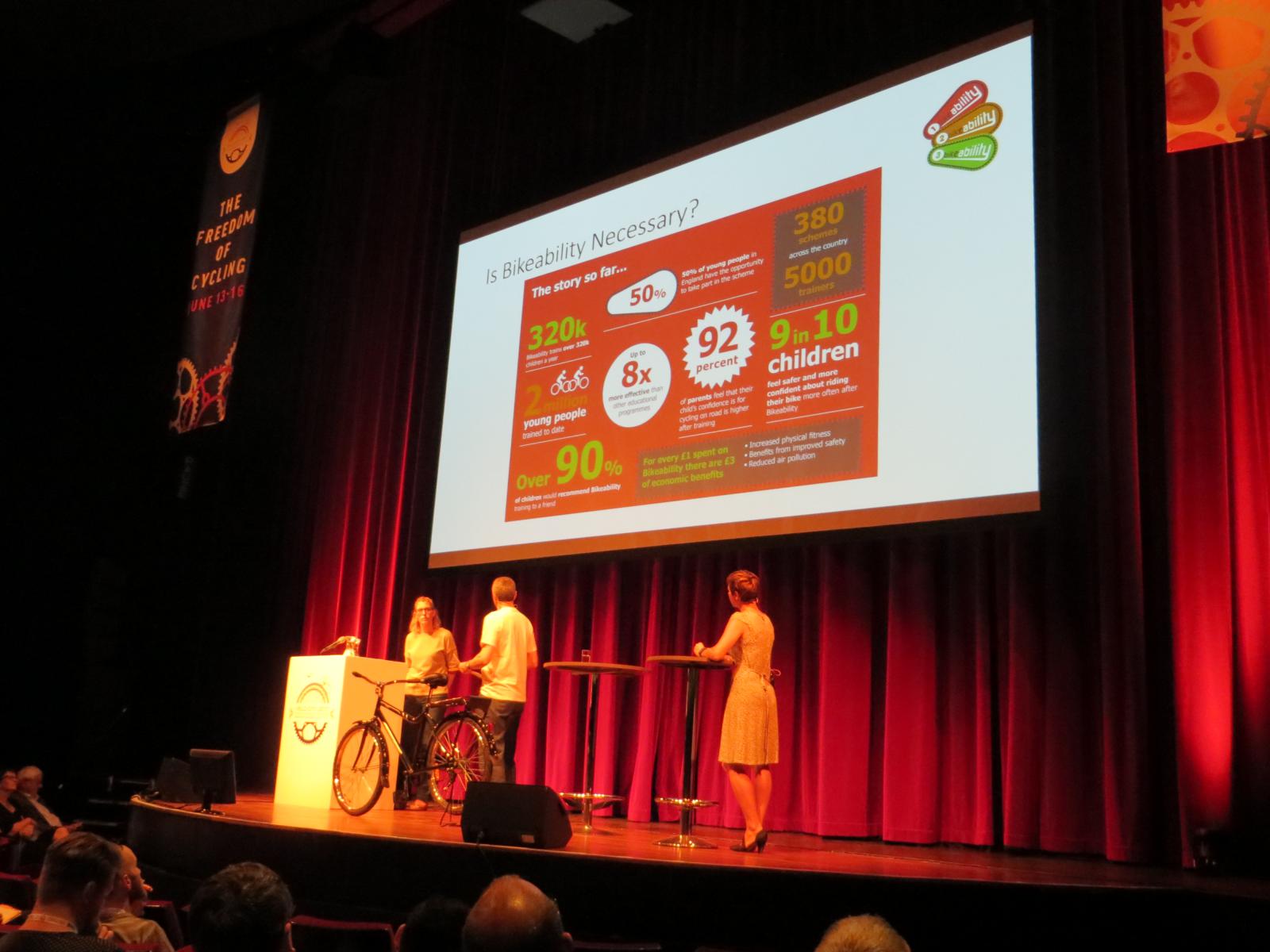
The motto of Velo-city 2017 is ‘The Freedom of Cycling’ and for children around the world the bicycle does indeed represent freedom. However, the environment that children grow up inevitably effects the way that they use their bikes. The session Freedom for Children brought together three speakers presenting very different conditions around the world and explained what the freedom of cycling means for both the children living there and their parents.
At the end of the session there was a surprise announcement when Saskia Kluit, Director of Fietsersbond, announced that to recognise just how special the conditions are in the Netherlands for children to experience freedom by bike, an application will be submitted for it to be added to the UNESCO’s list of Intangible Cultural Heritage. Furthermore, the Dutch artist Onno van Dockum will be designing a national monument to the cycling schoolchild! Read more
Outdoor Study Visit of Nijmegen’s (Wonderful!) Cycle Parking System
The most popular parts of Velo-city are often the study visits. On Day 2, this was again the case: delegates were in awe of Nijmegen’s cycle parking system and facilities! In response to the huge numbers of residents and visitors using bicycles, the City of Nijmegen has put a lot of thought, effort and money into creating a world class cycle parking system. On the one hand this comprises an array of high quality underground cycle parking facilities at important destinations, while on the other hand it includes carefully considered procedures to deal with poorly parked bicycles on city streets.
Innovation in Bikes and Smart Mobility Solutions (MAAS)
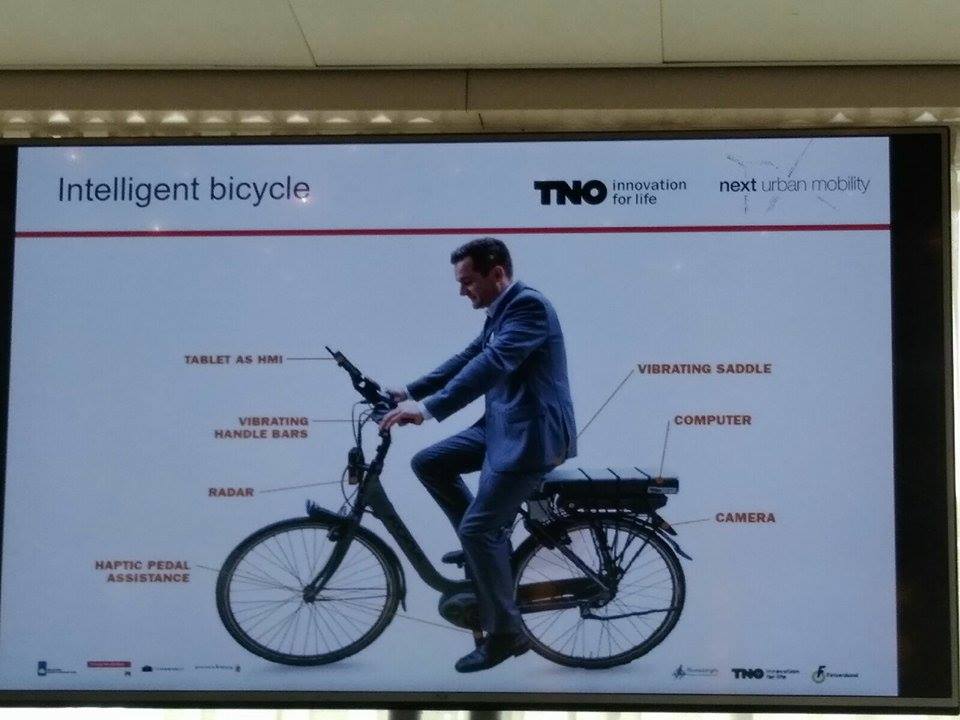
Three claims summarise this session on innovation in bikes and smart mobility solutions: Connectivity in general and connected bicycles in particular will have a positive impact on road safety and on user mobility choices; the bicycle industry will overtake the automotive industry in terms of innovations; technology alone will not solve all future cities problems. While a substantial part of this workshop subscribed to the statement: “In the city of the future the bicycle will be THE means of transportation”, not a single person raised its fingers when claimed: “Technology will solve all future cities problems.”
Cycling Tourism: Stimulating Urban Cycling – Speed Date
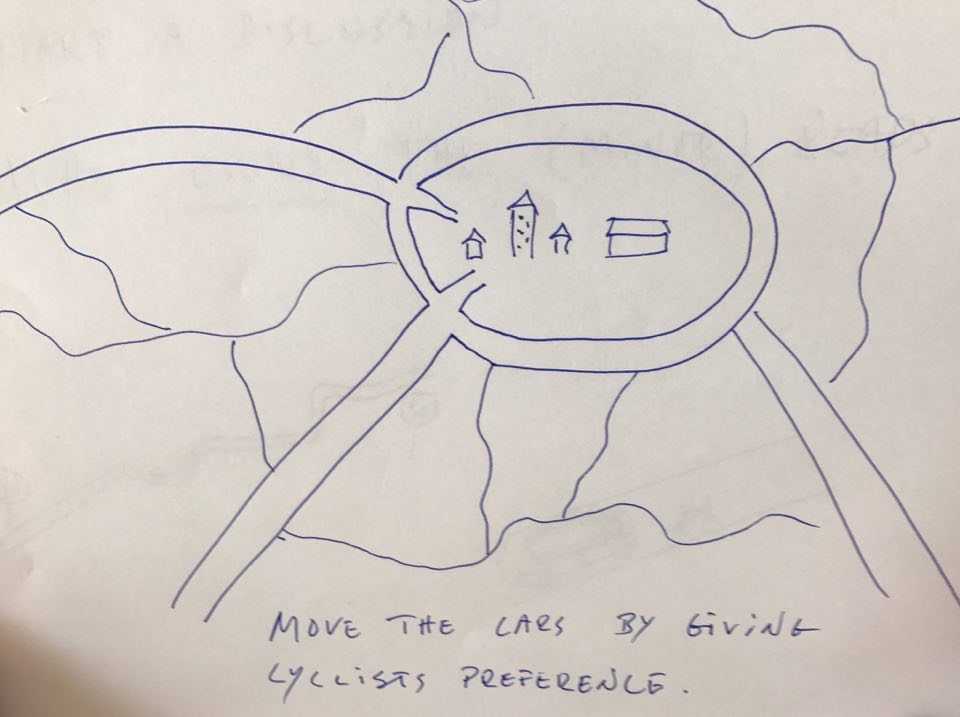
The promotion of cycling is not always easy, especially not when faced with challenges such as missing cycle infrastructure or low bike ownership. The main focus of today’s speed date session was on how cycle tourism can help to start and grow urban cycling. Over 20 participants attended the interesting and inspiring speed date session in which speakers from three very diverse countries (Japan, Denmark and Italy), presented and exchanged their experiences and best practice examples on how cycle tourism can be used as a means to stimulate and advance urban cycling. Cycle tourism is a new alternative to traditional tourism in which the bicycle is the primary mode of transport. It enables tourists to discover appealing localities from a different perspective- from a bike. Read more
Profile of Cyclists
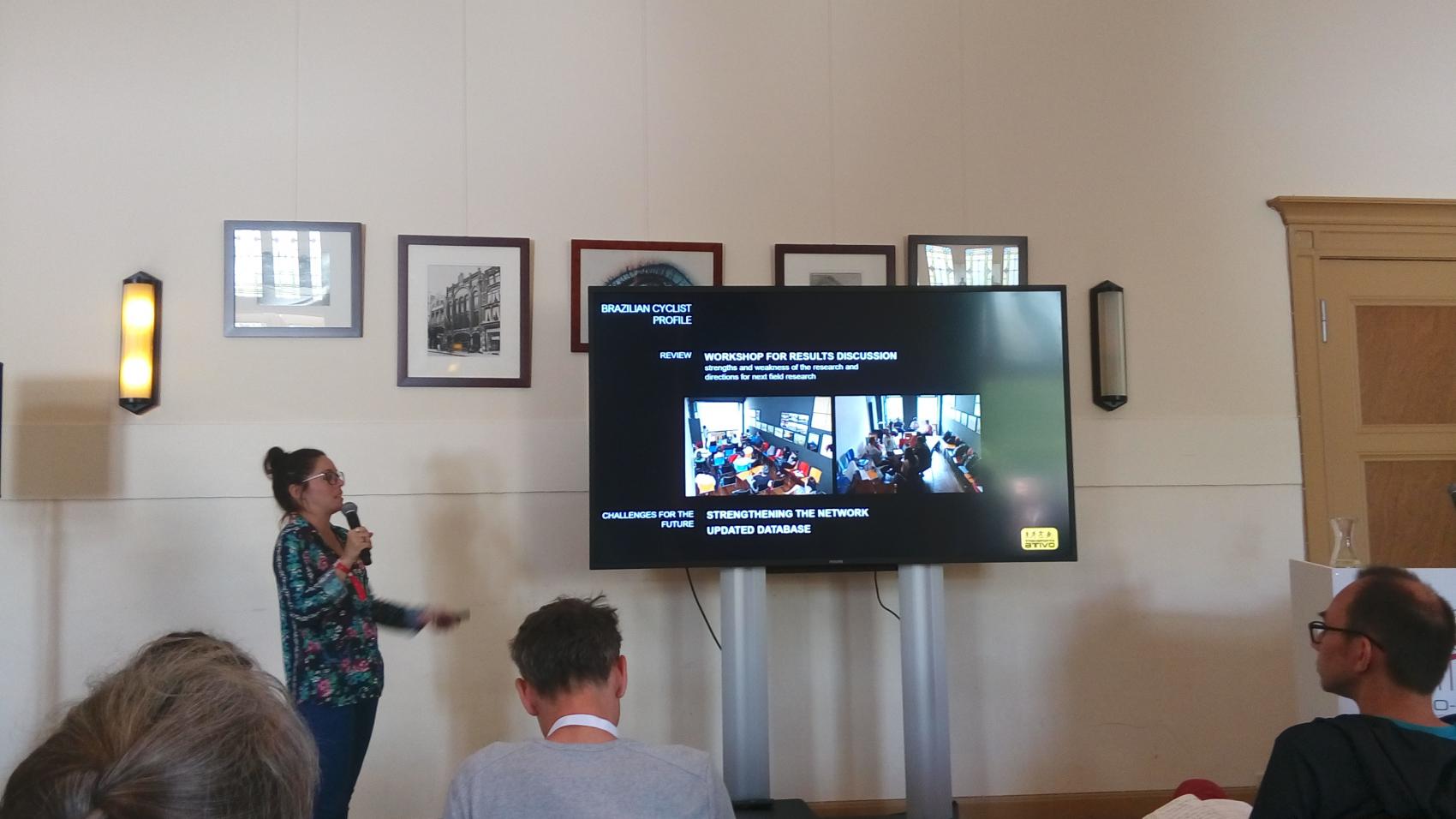
Who are the people that regularly use a bicycle and what are their needs? Which groups do not cycle and why not? Surveys from different countries demonstrate chances for raising bicycle use among different groups. People that cycle to work are happier and healthier than the ones commuting by car. That’s why the Province of Gelderland has developed a huge cycling highways’ network, explained Ms Anita Stienstra. People mostly cycle for joy but it was interesting to go more in details on how different groups cycle. Young people cycle because is cheap, other ages groups mostly for fun. Two studies show also that 61% of cyclists are male and 75% are people with high-level education. Surprisingly 92% of them has a driving license but they choose bike anyway. 50% cycle more than 18 km, 30% cycle 4 days per week or more, 34% 2-3 days per week. The most important result achieved is about the behavioural change achieved, said Ms Stienstra: 75% of people that tried to regularly cycle for the first time continues to do that. Read more
Cycling the fast lane
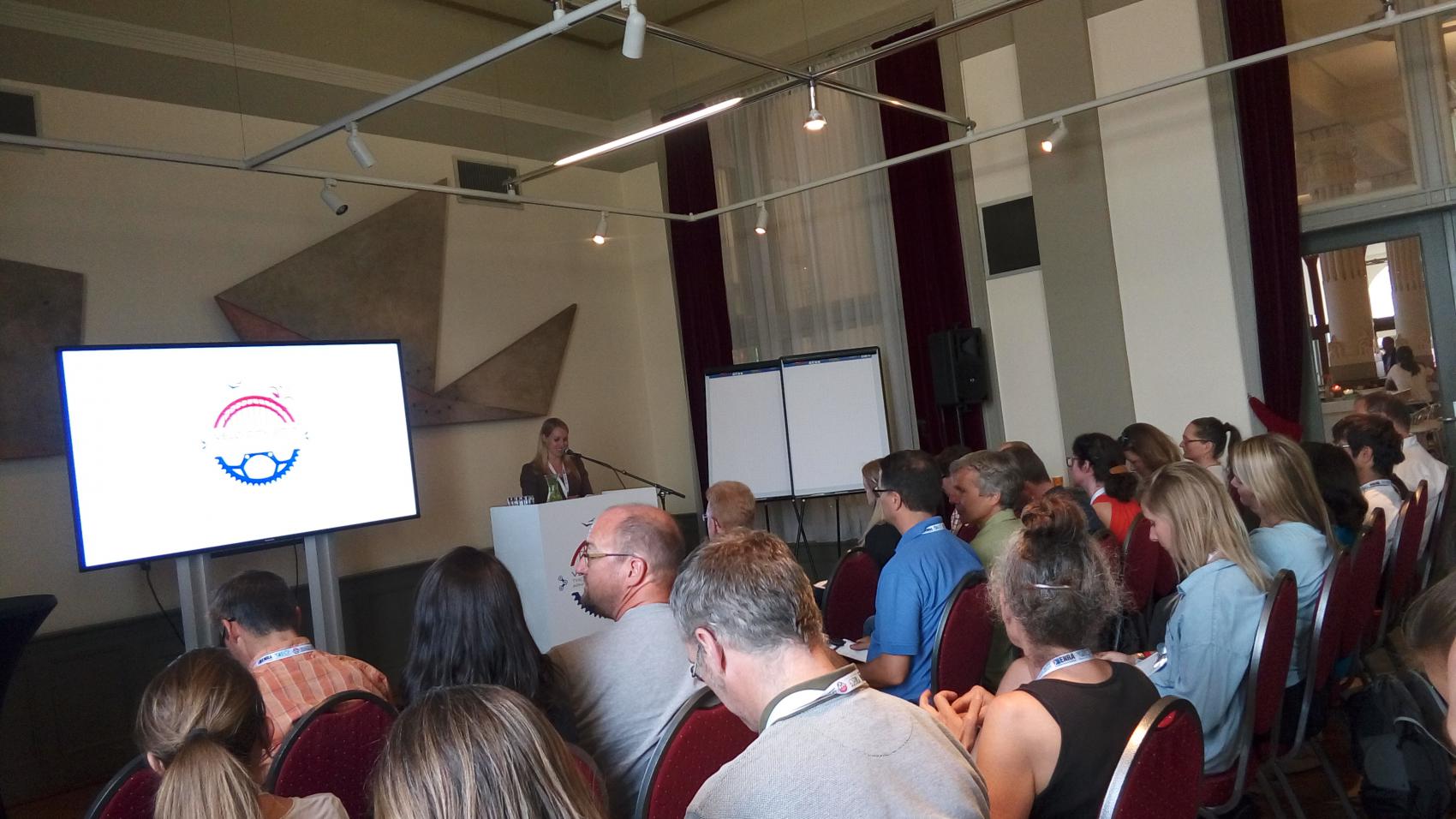
Four speakers from the first generation of cycle highways presented their ambitions and illustrated the CHIPS Assessment Tool with stories from their regional cycle highways. CHIPS (www.cyclehighways.eu) is an Interreg North-West Europe project that will develop and promote cycle highways as an effective and cost efficient low carbon solution for. The CHIPS project, ECF is partner of, has developed a Cycle Highway Assessment Tool that will suggest a European standard for cycle highways, explained Ms Carolien Ruebens, project officer at the European Cyclists’ Federation.
Wise and Smart Cities
Is a Smart City always a Wise city? And what is the role of bicycle mobility in a Wise Smart City? This session explored both the concepts with some of the most compelling speakers out there, highlighting the central role advocacy has to play in this space.
ECF’s Development Director, Kevin Mayne: “more than smart, electric or active, I am fond of human mobility. But I see big car companies lobbying hard every day to transform our cities in a playground for autonomous vehicles, and I know the only solution to that is making sure bicycles can get integrated in the emerging Smart City and Mobility paradigm. As advocates, we need your support to give us access to the rooms where the future of our cities is discussed, and make sure bicycles will be contemplated.”
Urban Planning
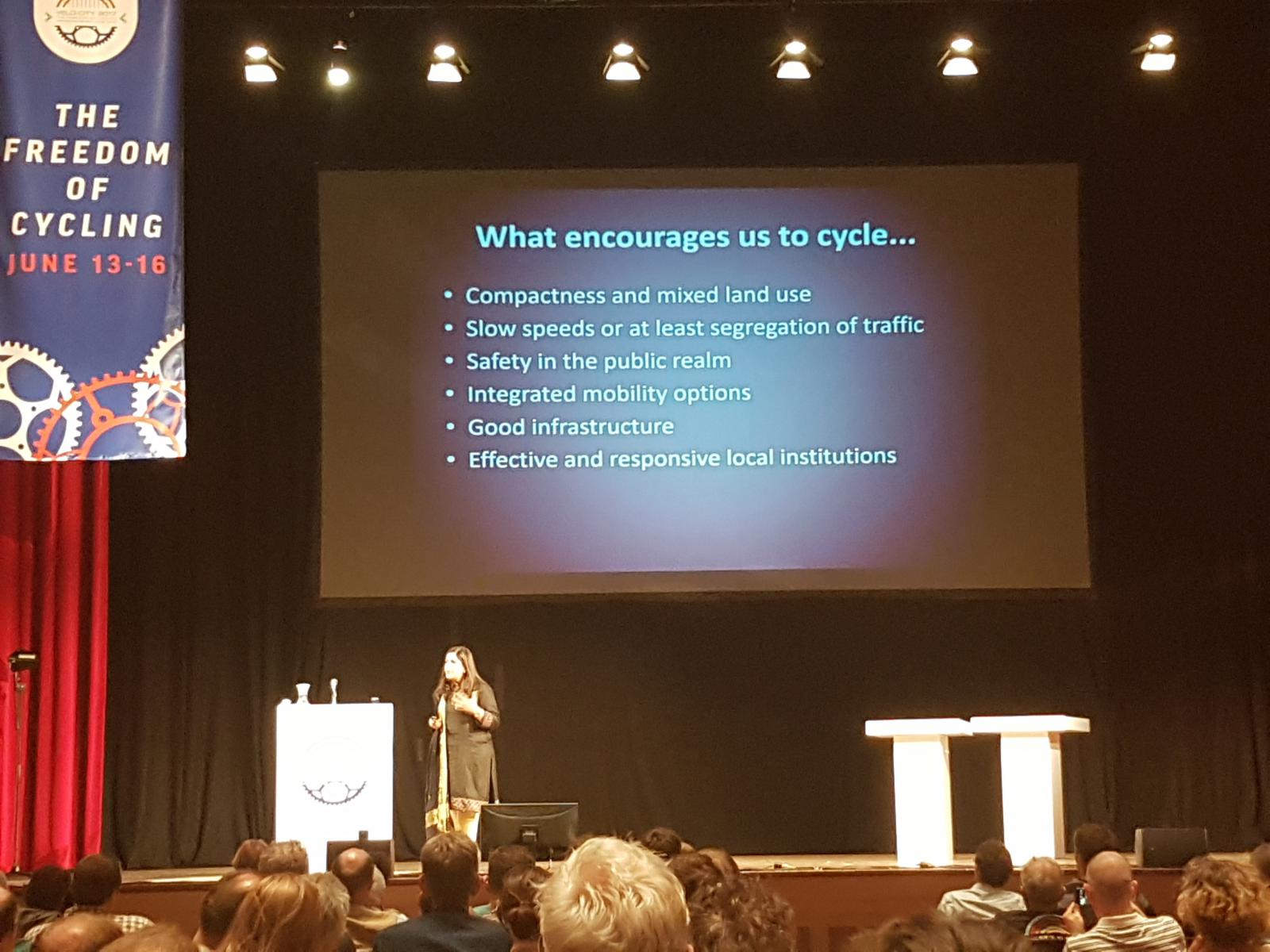 Active modes and people should be the core for planning healthy, livable, lively, safe and resilient urban environments. The Urban planning plenary session at Velo-city 2017 brought together professionals from various backgrounds. The first speaker, Masi Mohammadi, head of the research group ‘Architecture in Health’ at HAN University of applied sciences, positioned architectural design as a tool to empower citizens. Historically, architecture has been an important instrument of power and wonder. Ms. Narang highlighted how the environment we shape also shapes us, as well as the power of technology to support social activities that change our way of thinking.
Active modes and people should be the core for planning healthy, livable, lively, safe and resilient urban environments. The Urban planning plenary session at Velo-city 2017 brought together professionals from various backgrounds. The first speaker, Masi Mohammadi, head of the research group ‘Architecture in Health’ at HAN University of applied sciences, positioned architectural design as a tool to empower citizens. Historically, architecture has been an important instrument of power and wonder. Ms. Narang highlighted how the environment we shape also shapes us, as well as the power of technology to support social activities that change our way of thinking.
DAY 04: 16th of June
The first proposal for a EU Cycling Strategy was received by European Transport Commissioner Violeta Bulc
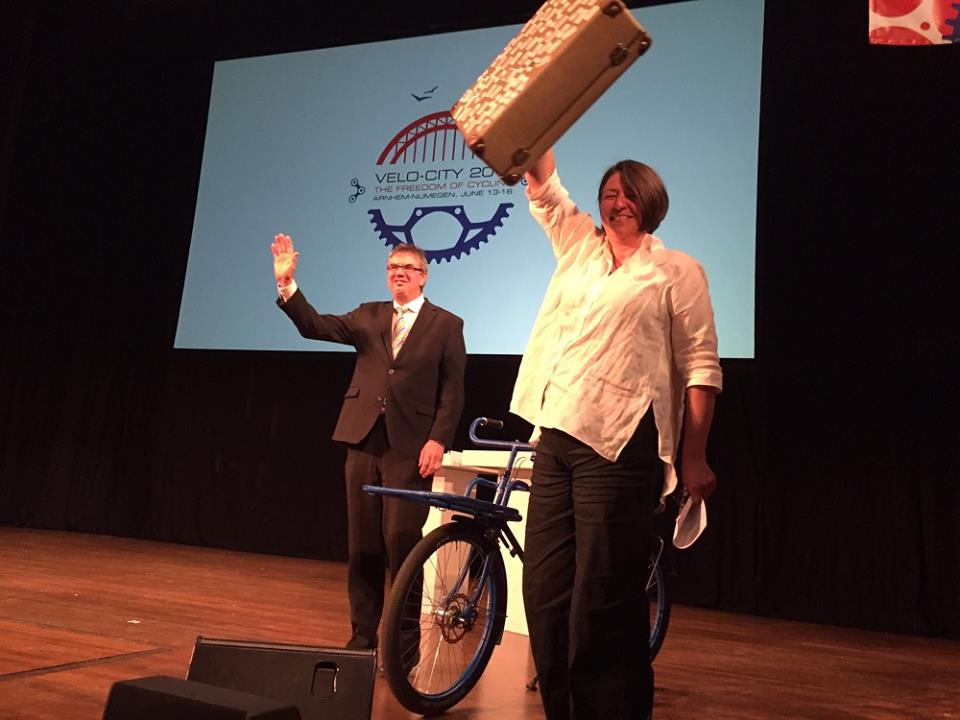
The EU Cycling Strategy recommendations were handed today to European Commissioner for Transport, Violeta Bulc, on the stage of Velo-city 2017 in Arnhem-Nijmegen. Over 1,000 people from every side of the spectrum joined forces for the creation of the first strategic document that, if adopted, could increase cycle use by 50% around Europe while reducing rates of killed and seriously injured to half.
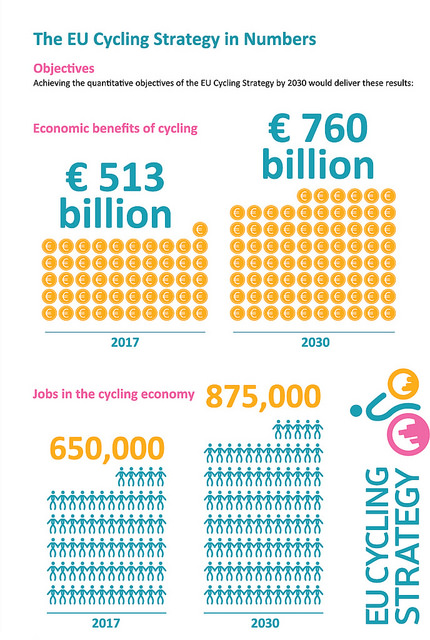 “We are not asking for special treatment, we want to be on the same level as every other mode of transport. Cycling already delivers 513 billion EUR of economic benefits in Europe every year and we can bring that number up to 760 billion EUR by 2030”, said Bernhard Ensink, Secretary General of the European Cyclists’ Federation.
“We are not asking for special treatment, we want to be on the same level as every other mode of transport. Cycling already delivers 513 billion EUR of economic benefits in Europe every year and we can bring that number up to 760 billion EUR by 2030”, said Bernhard Ensink, Secretary General of the European Cyclists’ Federation.
"We need to build a stronger case for cycling – and the next year could be a great opportunity to do so. It will be the Year of Multimodality and a regulatory framework for cycling can be a strong component of it", said Violeta Bulc, EU Transport Commissioner, while receiving a suitcase with the EU Cycling Strategy recommendations on stage. "We should also work to ensure that cycling is even better reflected when it comes to funding, in particular for the next multiannual financial framework after 2020."
The EU Cycling Strategy contains recommendations directed at all levels of governance and addresses behaviour change, infrastructure, vehicle regulation, multimodality and intelligent transport systems. Taking into consideration the wider political framework, the EU Cycling Strategy focuses on how cycling can deliver jobs and growth through a financial and fiscal level playing field and a robust European bicycle industry. The objective is to put cycling on an equal status to other modes of transport in terms of policies and investments while showcasing the clear added value of the European level in the process. Read more
Mobility as a Service (MaaS)
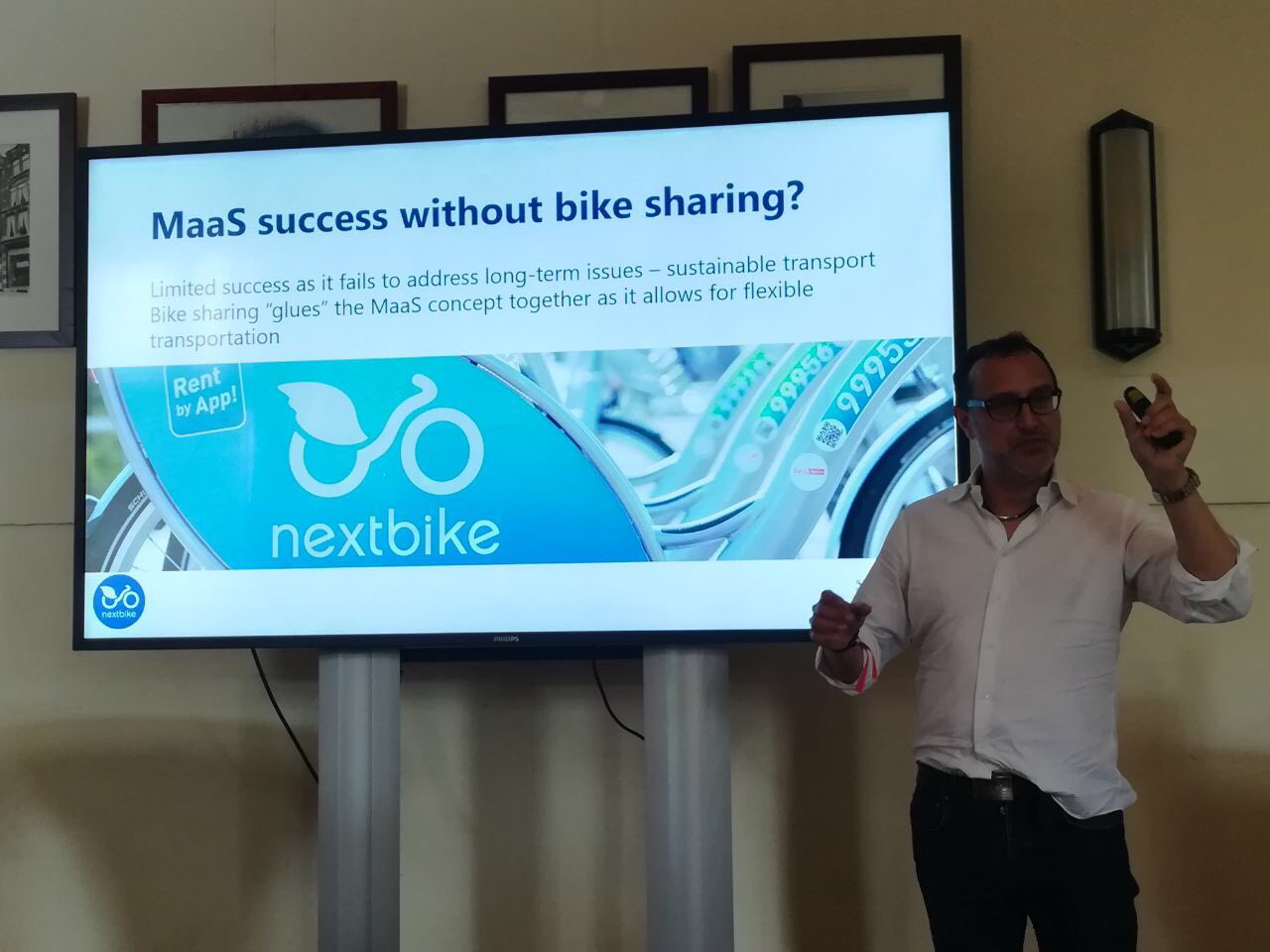
This session looked at how cycling services and systems, particularly Public Bike Share, can be incorporated into Mobility as a Service (MaaS). There are lots of problems within cities that are caused by our current transport modes and many of the solutions proposed do not solve all the problems. MaaS does provide some solutions to these problems by combining the right mode of transport for the right job at hand. However if we are to have bicycles included within a MaaS system they should also be useful to those who want to use them. So bikes should be available that can carry heavier loads, or be electric for longer distances. Good business models will have to take into account including; having bikes specifically built for city use; having good security, particularly for expensive electric bikes; cargo bike services; and peer to peer services.
The Best of Behavioural Change Campaigns
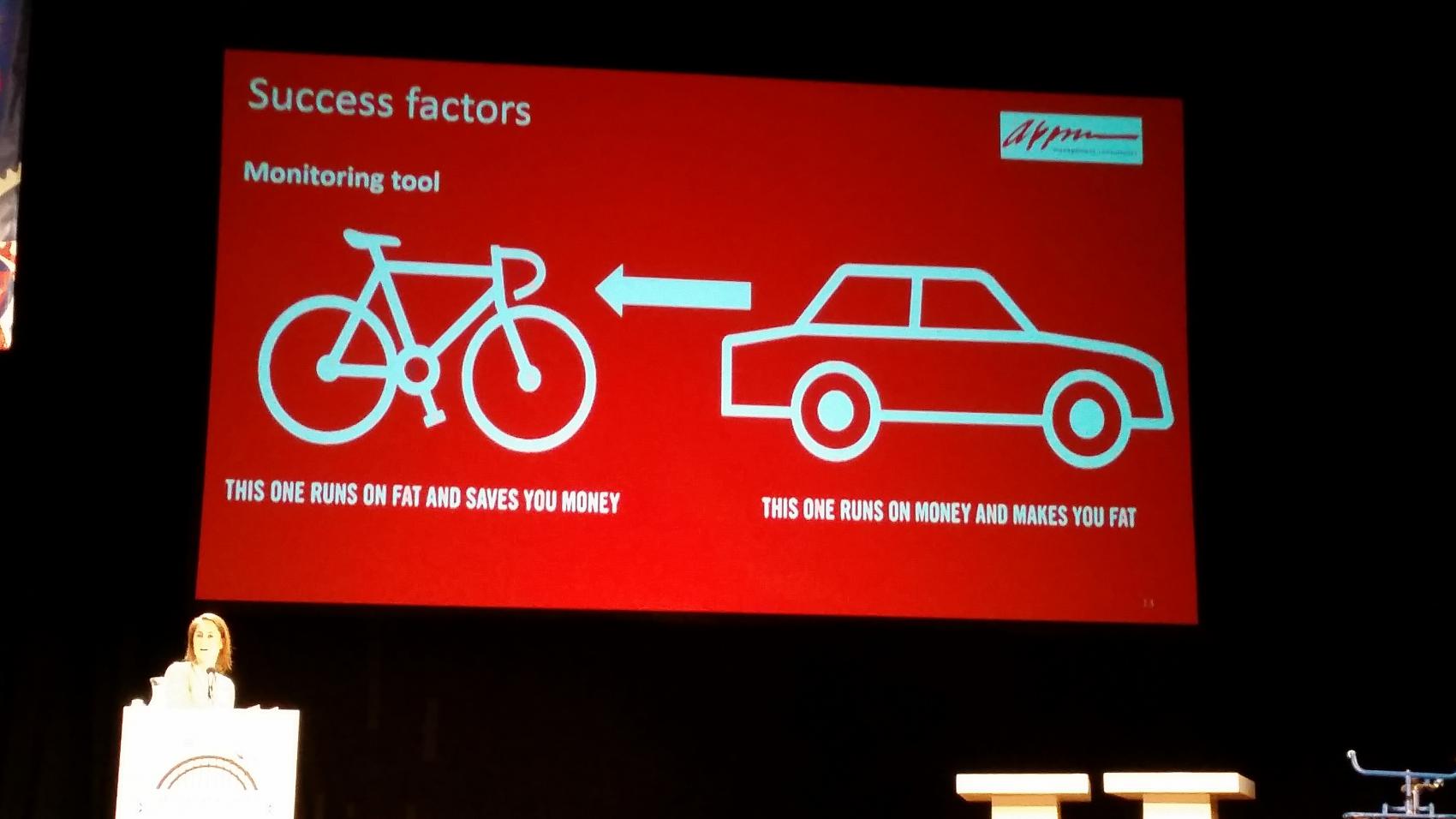 Five inspirational pecha kucha style presentations explored the best of behavioural chage campaigns in today's session. The Traffic Snake Game (www.trafficsnakegame.eu) developed by Mobiel 21 in Flanders, the B-Riders campaign developed by APPM Management Consultants, two campaigns promoting cycling as an alternative during raillroad disruption; one from Vienna municipality and one from Cycling Scotland, as well as the Pedala BH Campaign from Bello Horizonte City Hall, were all presented with valuable insight into different approaches to behavioural change to encourage more cycling.
Five inspirational pecha kucha style presentations explored the best of behavioural chage campaigns in today's session. The Traffic Snake Game (www.trafficsnakegame.eu) developed by Mobiel 21 in Flanders, the B-Riders campaign developed by APPM Management Consultants, two campaigns promoting cycling as an alternative during raillroad disruption; one from Vienna municipality and one from Cycling Scotland, as well as the Pedala BH Campaign from Bello Horizonte City Hall, were all presented with valuable insight into different approaches to behavioural change to encourage more cycling.
Combining everyday cycling and leisure: complimentary or challenging?
The benefits and challenges of combining cycling commuting and leisure were explored with three case studies in today's session. In the case of Nijmegen, Harriët Tiemens city alderman responsible for Sustainability, Green & Water and Mobility said they are “still trying to improve policy to deliver what cyclists want”. One measure is to reduce speeds from 50 to 30kph for large sections of the city. This is needed to provide safe space for pedestrians and cyclists. Marc Andre Gadoury, city councillor From Montreal, said that wherever they find conflicts, they try to enlarge the cycle path. There are speed limits for bikes in parks and other places where there are many other road users. In Budapest, the EuroVelo 6 and the Rakos-Stream greenway were the scene for several different types of challenges explained Akos Bereczky, from the BKK centre for Budapest Transport. These are common in areas where cyclists must share space with pedestrians. Ed Lancaster, ECF Policy Officer for EuroVelo, and moderator of this session, noted that Akos Bereczky and many others have said that Velo-city has inspired people with ideas that they are going to take back home.
Mayors' Session
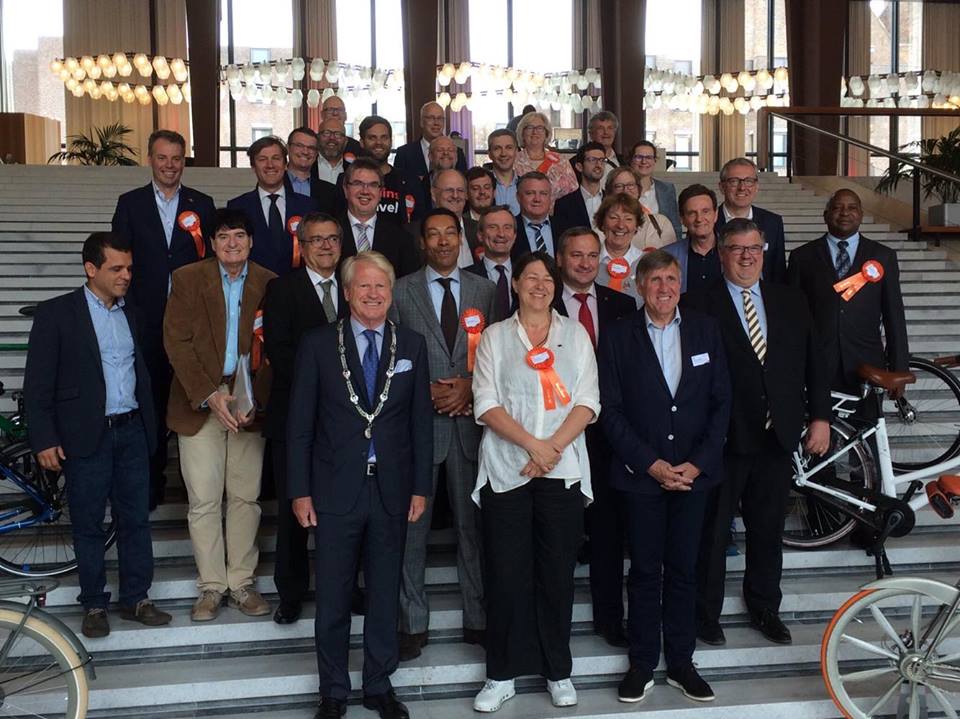
Closing ceremony

A wrap-up of the ceremony in the words of ECF Secretary General, Dr Berhard Ensink: “I’ve heard from many people that they’d learned and been inspired during this Velo-city,”
We learnt that ‘going Dutch’ means 1 king and millions of queens and kings on the road, that transportation systems are not gender neutral, to focus more on people than on vehicles, and that we all want happy people. We learned from each other it is possible to change cities into better places, and that this ultimately needs good governance. Seven points, as the word Bicycle has seven letters, the vehicle that was invented 200 years ago.
Need more information?
European Cyclists’ Federation’s Velo-city conference series is widely considered as the premier international planning conferences on cycling.
About Velo-city 2017 Arnhem - Nijmegen: check the website & about the Velo-city series check our dedicated page.
Contacts:
Marcio Deslandes, Velo-city Series and Global Policies Director
Zoe Kruchten, Velo-city Series & Global Policies Coordinator
Elina Baltatzi, Outreach Officer

